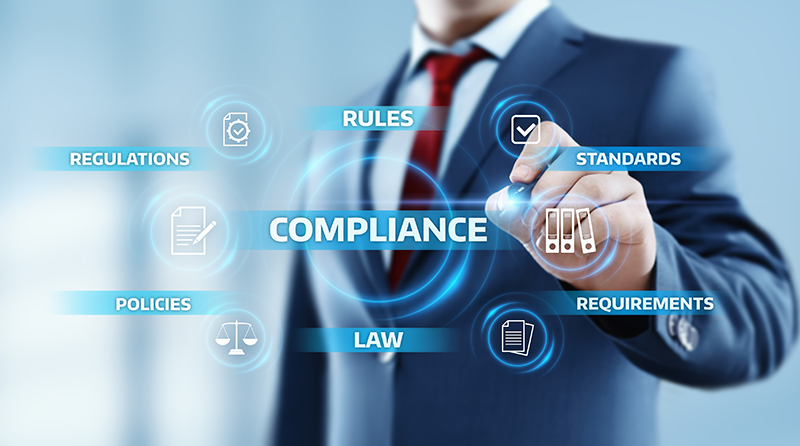In business circles, you’ll regularly hear terms such as ‘risk management’ and ‘compliance management’. Now, while the two are rather closely related and somewhat interchangeable, they are not exactly the same thing. All businesses need to be aware of both risk management and compliance management, so it’s important to understand exactly what these terms mean and what you should do to safeguard your business interests.
In this article, we’ll be taking a closer look at both risk management and compliance management to determine the differences and how adhering to both will help to ensure the longevity and profitability of your commercial endeavours.
What Is Risk Management?
Anyone who ventures into the world of business will face risks. It’s inevitable. If there weren’t any risks involved, the business would be easy. However, talk to any experienced business owner and they’ll all tell you running a business is far from being a piece of cake.
Something could happen any day of the week that could adversely affect business on many levels. While not everything in business is considered a risk, risks do exist and it’s vital that business owners and staff learn to recognise potential risks that the operation could (and does) face.
A very general example of a risk is something that could lead to a drop in production and/or business profits. This could be something like using equipment that is low quality, poorly-trained employees, not keeping a closer eye on business expenditure, failing to realise that certain business procedures are turning off customers, failing to detect a change in market trends and a plethora of other things that could potentially lead to a problem.
Then there are risks that could pose physical problems, such as injury to workers or customers, events that could lead to a fire and so on.
In order to be able to manage risk effectively and to do something about issues before they blow up in your face, the first step is to recognise these potential hazards and pitfalls in the beginning. Risk management is more about prevention than it is about the cure.
What Is Compliance Management?
That’s a very basic synopsis of what risk management is about, but what’s compliance management and how does it tie into risk management?
No matter what industry your business operates in, there will be laws and guidelines that govern it. These laws are in place to help protect everyone involved in the business (including customers) as well as to protect the state of the industry in general.
A common example of compliance would be adhering to Workplace Health & Safety regulations. In other words, your business practices must fall within the guidelines to ensure a safe work environment for everyone, minimising the risk of accidents in the workplace or the potential spread of disease.
Failing to properly manage business risks can lead to non-compliance, and failing to be compliant with the law can lead to experiencing pitfalls in the operation of your business. You can see how the two are different, but also overlap and interact with one another.
All businesses need to strive to manage risk as well as remaining compliant with industry standards.
How To Safeguard Your Business
To truly safeguard your business, you’ll want to have risk management and compliance management solutions in place. The bigger the business, the more critical these measures are and the more there is to keep an eye on.
For businesses that have a larger budget, you could employ an experienced risk manager and compliance manager on a full-time basis. Your risk manager will be in charge of all things pertaining to risk and compliance management. They’ll also help to make everyone in the workplace aware of potential hazards and the laws that govern the business. Risk managers may also interact with staff to determine any potential problem areas.
To take things to the next level, risk management and compliance management software are exceptional tools that make the task so much easier. This dedicated software can alert your manager to potential problems before they escalate, as well as providing tools to remain compliant and report any incidents to governing bodies.
With a firm understanding of and focus on risk management and compliance management, your business will be in good shape to continue successfully well into the future.

